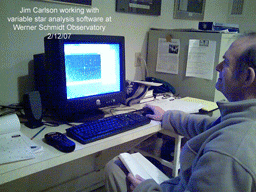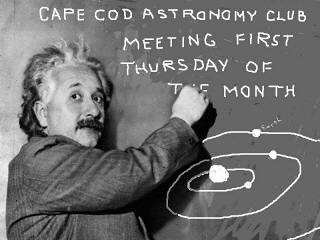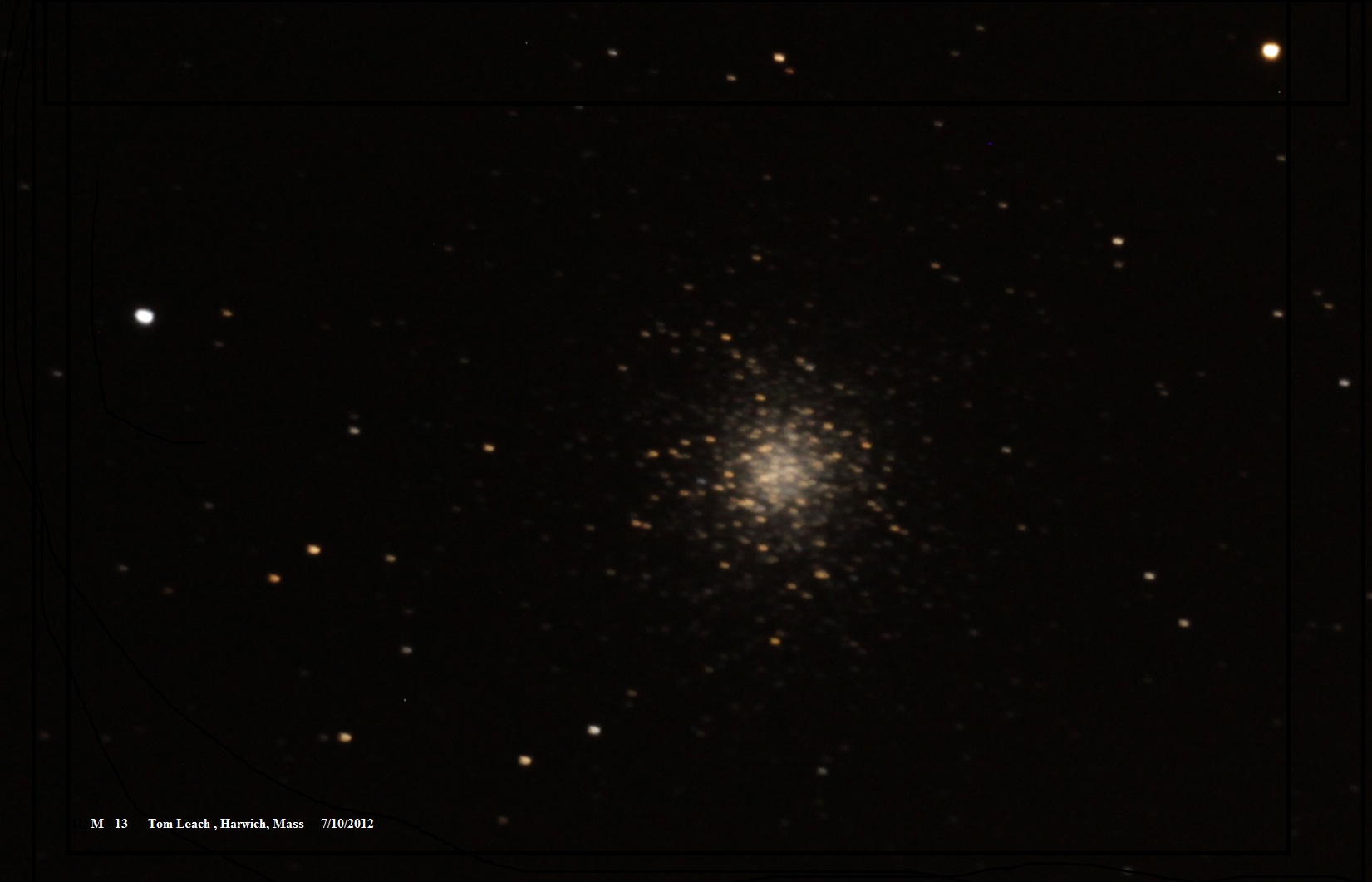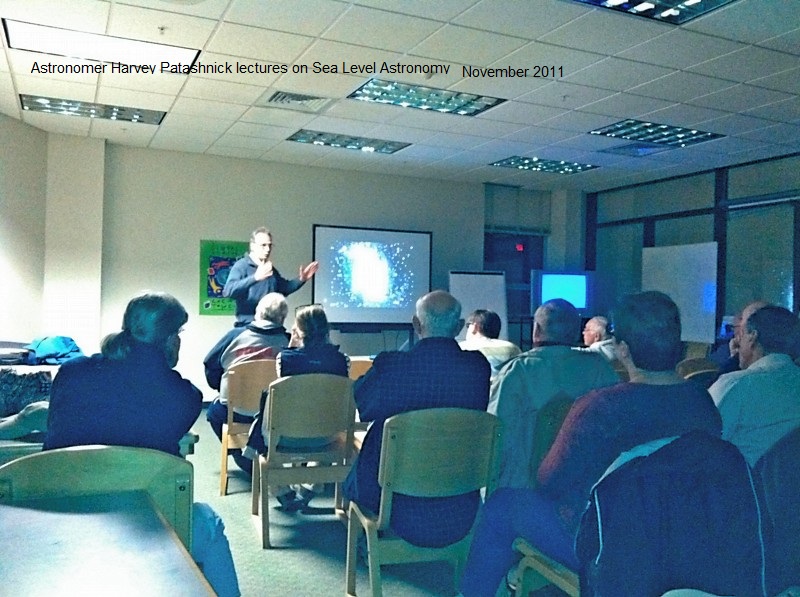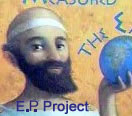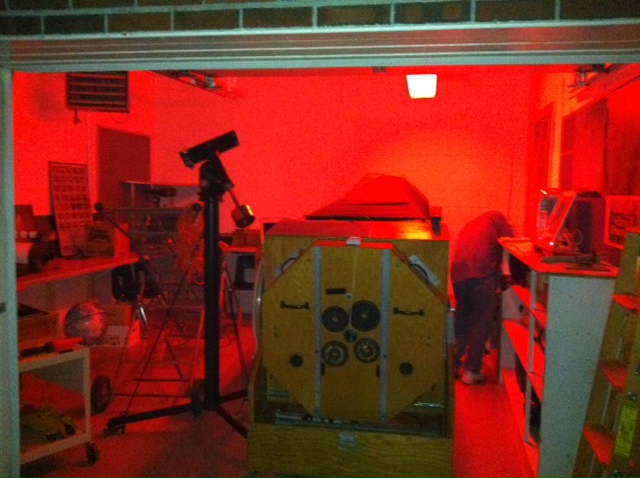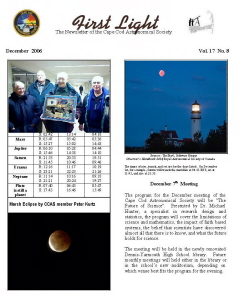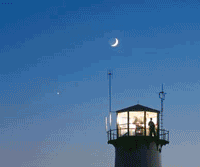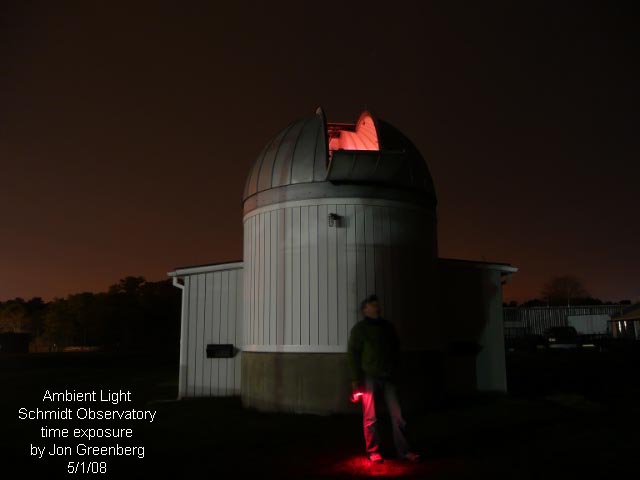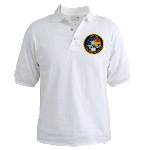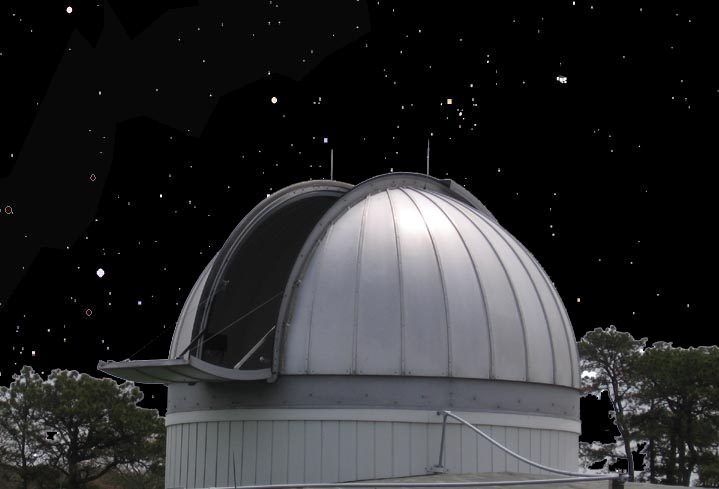 | www.ccas.ws Founded 1986 | 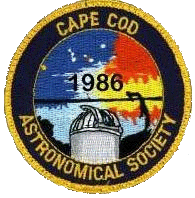 Lat: N 41° 40' 42" Lon: W 70° 11' 37" | |
| New Mailing Address: | Werner Schmidt Observatory D-Y High School 210 Station Avenue South Yarmouth, MA 02664 | ||
We're Growing! Come learn and enjoy Astronomy with us.
*The Cape Cod Astronomical Society is an excellent source for information on studying the night sky and heavens. We have provided hundreds of useful links throughout this website to steer our members and astronomy friends to helpful information. This website is created with Internet Explorer, therefore, some features of this website may be masked if you are using another browser like Mozilla or Netscape. Be sure to refresh any/all pages of this website as the information and photographs are updated frequently. Observatory telephone number is 508-398-4765. Other contact telephone numbers (including Observatory Director Mike Hunter) can be found on the Membership Info page. Our e-mail address is info@ccas.ws. CCAS meets at 7:30 pm on the first Thursday of every month in the library at Dennis-Yarmouth Regional High School, Station Ave, South Yarmouth, Massachusetts. Meetings are open to the public. CCAS supports the Cape Cornerstone Project, the D-Y Regional High School Astronomy Club, and dark skies. This website is set up for easy viewing with your monitor display set at 800 by 600 pixels.
.
. .
.
.

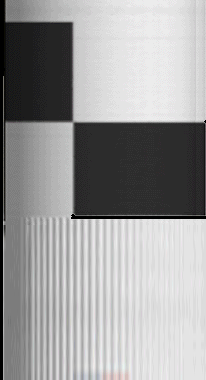
>

Latest CfA Forums below require Realplayer Program .
Cool Stuff CCAS Vice President Paul Cezanne talks about Killer Asteroids
Mars Exploration Program
NASA TV 
Galileo Jouney to Jupiter
Venus Express Satellite to Venus
ANYTIME OF YEAR IS A GOOD TIME OF YEAR FOR OBSERVING AT THE WERNER SCHMIDT OBSERVATORY. KEEP IN MIND THAT SUMMER STAR PARTIES ARE HELD NEARLY EVERY THURSDAY EVENING JUNE THROUGH THE END OF AUGUST, WEATHER PERMITING. PUBLIC WELCOME.
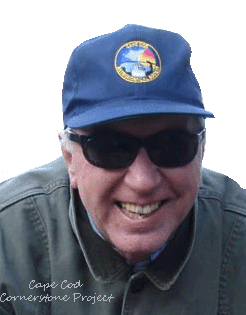 Cape Cod Historian Mike Farber is among the list of great speakers on astronomy related topics which often triggers the Society's support in their project area. CCAS makes it a point to have a keynote speaker at every monthly meeting. Our meetings are held the first Thursday of the month are free and open to the public.
Cape Cod Historian Mike Farber is among the list of great speakers on astronomy related topics which often triggers the Society's support in their project area. CCAS makes it a point to have a keynote speaker at every monthly meeting. Our meetings are held the first Thursday of the month are free and open to the public.
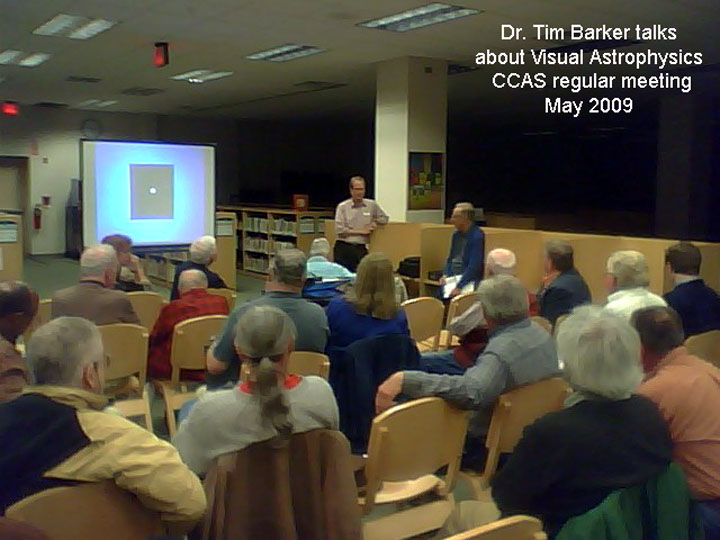
Astronomer Dr. Timothy, Wheaton College Department of Physics lectures on Visual Astrophysics at the May 2009 meeting at Dennis-Yamouth Regional High School.
|
Marveling at the night skyA visit from Larry Brookhart's Harwich Junior AstronomersSchmidt Observatory - (4/9/07). We arrived at the Observatory at 6:30PM, long before the last rays of the Sun were to drop below the horizon. Already about seven families from Harwich and 15 grade schoolers were busy chasing around the Observatory grounds and blowing off some energy while Larry Brookhart set his school made 10" scope on planet Venus burning in the western sky. As the students took turns "ooing and awing" at the yellow planet I asked a few kids which was further away, the Sun or Venus? Why is this planet yellow and so bright? Of course a few tried to answer the first question saying the Sun of course is further. But the answer is, at this moment Venus is further than 1.16 times the distance Earth to our star the Sun. How come?? Others were surprised to learn Venus is always surrounded by a cloud of yellow sulphuric acid gas that reflects the Suns rays in yellow and absorbs all other colors. Neat. Well by this time, dusk was being overcome by darkness and we had a a good view of Orion and his belt, the Big Dipper and and some power house stars like Sirius and Procyon that worked their way through the mercury vapor light stream coming off the parking lot and High School. Observatory Director Mike Hunter and Matt Jones had finally gotten the telescope in the dome to track and the kids lined up for the best view they will find of Saturn on Cape Cod. Wow. Later Mike used the laser pointer to find more star features. Yes it was a successful evening for these Harwich junior astronomers. Hopefully, they will all remember their visit to the Schmidt. |
|
CCAS Video of the Week
Astronomy is a fascinating lifetime hobby enjoyed by people from all walks of life with varied interests.
Being outside and marveling at the night sky is a way to enjoy nature.
Astronomy is fun and easy to learn! You don't have to be a scholar in physics or math to enjoy our universe. Besides binoculars or a telescope you will need star maps or books listing the location of various objects in the sky. You can observe or photograph the heavens on a casual or serious basis, undertake scientific study or marvel at the wonderment of our existence. Now even computerized telescopes and programs are available making it very easy to identify numerous objects. Much useful information for all levels of interest is available from amateur astronomy clubs like ours, libraries, and thousands of websites, including this one.
You could drive 80 miles to Cambridge to hear these interesting astronomy lectures held every Thursday at 4 PM at the Harvard University campus, Phillips Auditorium, Building D, Center for Astrophysics (unless noted otherwise) or you can see the lecture online using services on this frame.
.

